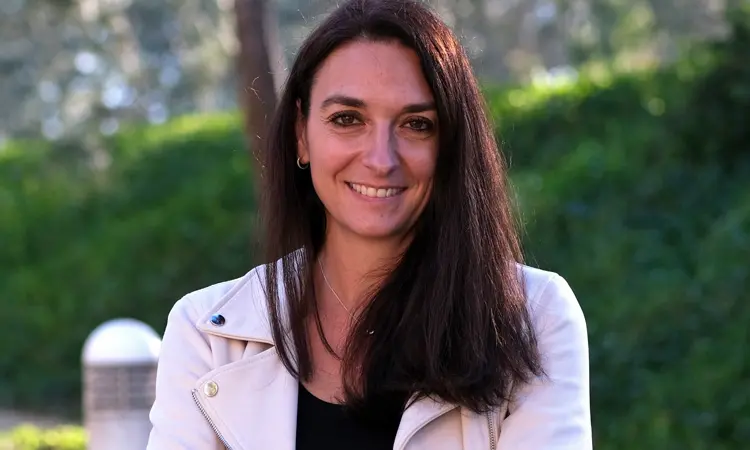By learning how small amounts of stress activate autophagy, researchers may create new approaches to combat age-related disease
Assistant Professor Caroline Kumsta, Ph.D., has been awarded a five-year, $2.9 million grant from the National Institute on Aging (NIA), part of the National Institutes of Health (NIH). The funding will advance research to better understand how the body’s cellular recycling system (autophagy) needs to be activated to produce long-term health benefits.
“This award will enable us to take a deeper dive into the fascinating concept of hormesis, where mild, sublethal stress leads to improved health and a longer lifespan,” says Kumsta. “Our goal with this grant is to learn more about how this is regulated, which may lead to healthier aging and improved treatments for age-related conditions.”
Like many researchers, Kumsta uses C. elegans—a tiny roundworm—as a model organism to reveal important lessons about aging and autophagy. C. elegans is a powerful tool for biological research because it shares many of the same anatomic and cell functions as humans, and their short lifespan (average 17 days) enables researchers to study how genes are activated and measure the effects in just two to three weeks.
Kumsta’s lab has previously shown how brief exposure to heat shock (stress) early in life triggers autophagy, which is crucial for maintaining cellular health and function. They identified two key transcription factors, HLH-30/TFEB and HSF-1, proteins that help turn specific genes on or off, which play a significant role in regulating autophagy and are required for these long-term benefits.
“Next, we aim to pinpoint the exact timing and specific tissues where autophagy must be activated to achieve these long-term health benefits,” says Kumsta. “We will investigate how heat shock affects autophagy-related genes over time and uncover new regulators of HLH-30/TFEB.
“Our preliminary data suggest that certain autophagy genes maintain elevated transcript levels for several days post-heat shock, indicating a sustained beneficial effect. We will use cutting-edge techniques like single-cell RNA sequencing to identify these long-term transcriptional changes and determine their roles in promoting longevity and improved proteostasis,” adds Kumsta.
By understanding the precise spatiotemporal requirements for autophagy activation, Kumsta hopes to develop innovative strategies, such as heat therapy, to enhance cellular health during aging and treat age-related diseases.
The grant, awarded by the National Institute on Aging, is titled, “Hormetic regulation of Autophagy in Aging” R01 AG083373).
